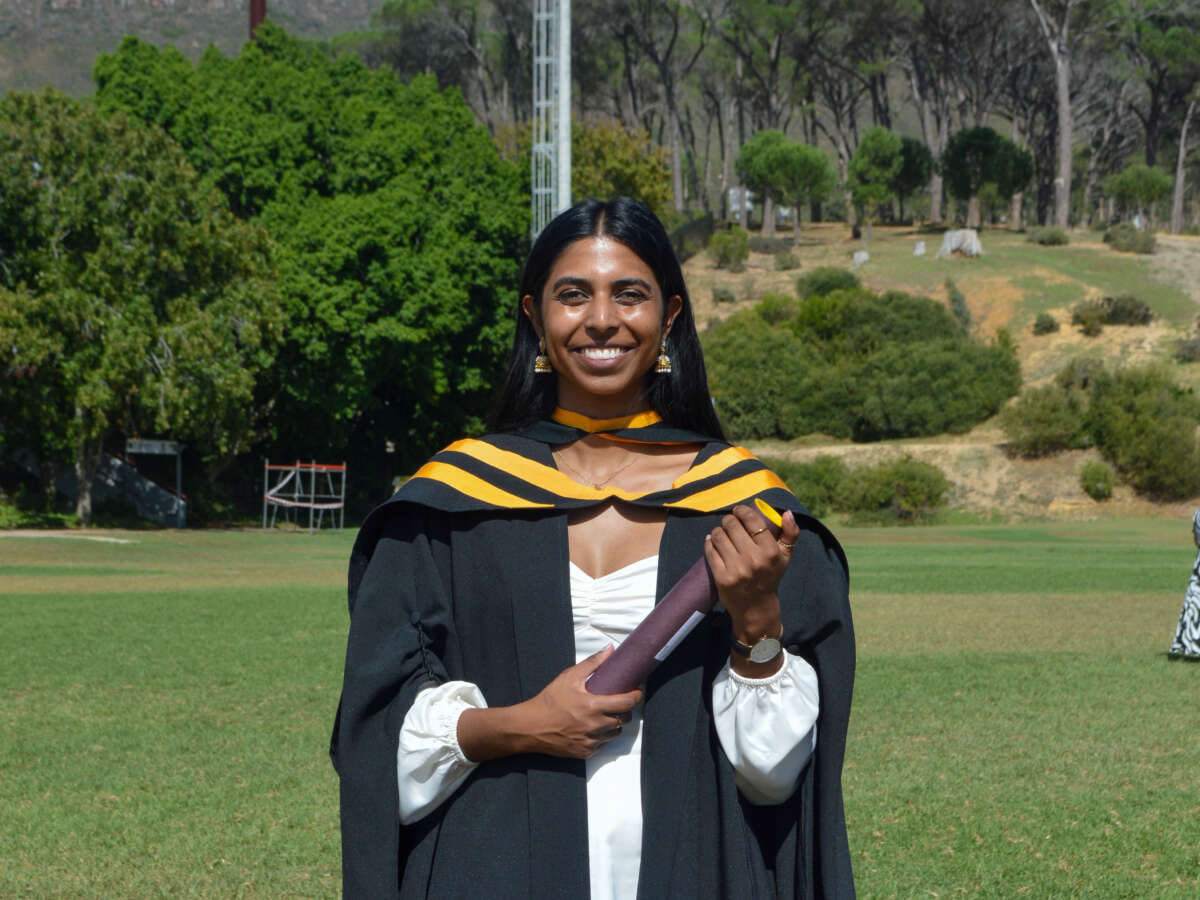As graduation season sweeps through Stellenbosch University, it is a time not just for mortarboards and celebrations but also for honouring academic excellence and groundbreaking research. Among the standout graduates this year is Prajna Ukabhai, who has been awarded her MA degree in Psychology with Cum Laude distinction for her exceptional thesis titled “Investigating the ‘in-between’: Dehumanisation among Marginalised groups in South Africa.”
In a country still grappling with the legacies of its complex history, Prajna’s work sheds vital light on intergroup tensions that extend beyond the traditional narratives of apartheid oppression. Her research delves into the nuanced dynamics between historically marginalised groups, focusing on the intermediary status held by Coloured and Indian people within the apartheid racial hierarchy. The apartheid era didn’t just create divisions between White and non-White communities but also stratified marginalised groups themselves, leading to intricate social dynamics that persist to this day. Prajna’s thesis underscores the importance of understanding how dehumanising perceptions, where individuals view others as less than fully human, play out within these complex social frameworks.
Her study, which involved 432 participants including Coloured and Indian individuals, revealed significant insights. Notably, it found that feelings of dehumanisation were more pronounced when experienced from the majority White population compared to interactions with Black African people. This phenomenon highlights the enduring impact of historical power imbalances and how they shape present-day social interactions.
Moreover, Prajna’s research uncovered a concerning pattern of responsive dehumanisation, where individuals reactively dehumanise others in response to feeling dehumanised themselves. This cycle, particularly evident in interactions between Coloured, Indian, White, and Black African communities, points to deep-seated tensions that stem from unresolved historical injustices. One crucial aspect of Prajna’s findings is the role of identity threat and self-preservation in mediating dehumanising attitudes. This highlights the psychological mechanisms at play within marginalised groups, as they navigate complex social landscapes shaped by past traumas and ongoing inequalities.
The significance of Prajna Ukabhai’s thesis extends beyond academic accolades. It serves as a clarion call to address the structural inequalities that perpetuate dehumanisation and hinder genuine solidarity among South Africa’s diverse communities. By unpacking the intricacies of social identity and power dynamics, her work paves the way for deeper conversations and meaningful interventions towards a more inclusive and empathetic society.
As we applaud Prajna’s remarkable achievement, we also acknowledge the broader implications of her research. It is a reminder that the journey towards reconciliation and social cohesion requires not just historical reckoning but also a profound understanding of the lived experiences and complexities within marginalized communities. Congratulations to Prajna Ukabhai and all the AVReQ fellows who have contributed to the rich tapestry of knowledge and progress at Stellenbosch University.
